The courts of justice represent the backbone of any democratic legal system. Their work is essential to ensure fairness, legality, and respect for fundamental rights in society.
Their main purpose is to exercise jurisdiction, which means resolving disputes effectively with res judicata, and to fulfill other acts that the laws organizing them may attribute, which are part of voluntary jurisdiction.
In this line of thought, there is in Europe a supreme court called the European Court of Human Rights.
What do the courts do?
I believe the first thing we should understand, or try to understand, is the work that the courts must perform.
Courts of justice are those public bodies or elements that have the function of resolving legally relevant conflicts.
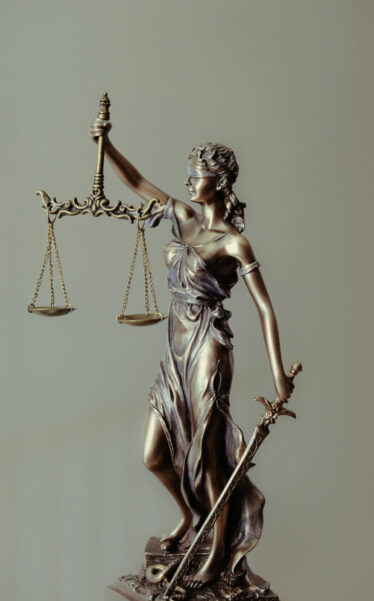
From resolving civil disputes to prosecuting serious crimes, courts play a crucial role in protecting individual rights and preserving the rule of law. Examining their work is essential to understand the importance of their function in society.
Firstly, courts of justice are responsible for interpreting and applying the law in the cases brought before them. This involves ensuring that laws are interpreted fairly and consistently and that they are impartially applied to all parties involved.
On the other hand, judges can be seen as guardians of justice. They must exercise their authority independently and objectively, without being influenced by political or personal considerations.
Secondly, courts play a crucial role in protecting human rights and fundamental freedoms. This includes ensuring the right to a fair and equitable trial, protecting against torture and inhuman or degrading treatment, and safeguarding freedom of expression and association.
Courts constitute a vital barrier against the abuse of power by governments and other institutions, and are fundamental to maintaining the balance between state power and individual rights.
Lastly, courts play an essential role in protecting democracy and the rule of law. By ensuring compliance with laws and democratic norms, courts help to prevent arbitrariness and abuse of power, and protect against the erosion of democratic institutions.
The work of courts of justice is essential to ensure fairness, legality, and respect for human rights in a democratic society. Their tireless work as guarantors of justice and equity is fundamental to the effective functioning of any legal system and to the protection of the fundamental rights of all citizens.
The Issue
Our society needs courts of justice to ensure fairness, legality, and the protection of human rights in a democratic society. Their tireless work as guarantors of justice and equity is essential to maintain order and social cohesion, and to protect the rights and fundamental freedoms of all citizens.
However, the reality is that many judicial systems face a series of challenges and problems that affect their effectiveness and their ability to deliver justice effectively. In this article, we will explore the issue of justice in our society and how courts work to address it.
One of the main issues facing our society in terms of justice is the slowness and congestion in the courts. The long waiting times from filing a lawsuit to the conclusion of the trial can take years, even decades, leading to a sense of frustration and distrust in the judicial system.
This slowness can be due to a variety of factors, such as lack of resources, complexity of cases, and lengthy legal procedures. Additionally, the lack of resources and staff in the courts can contribute to this congestion, further hindering the efficiency of the judicial system.
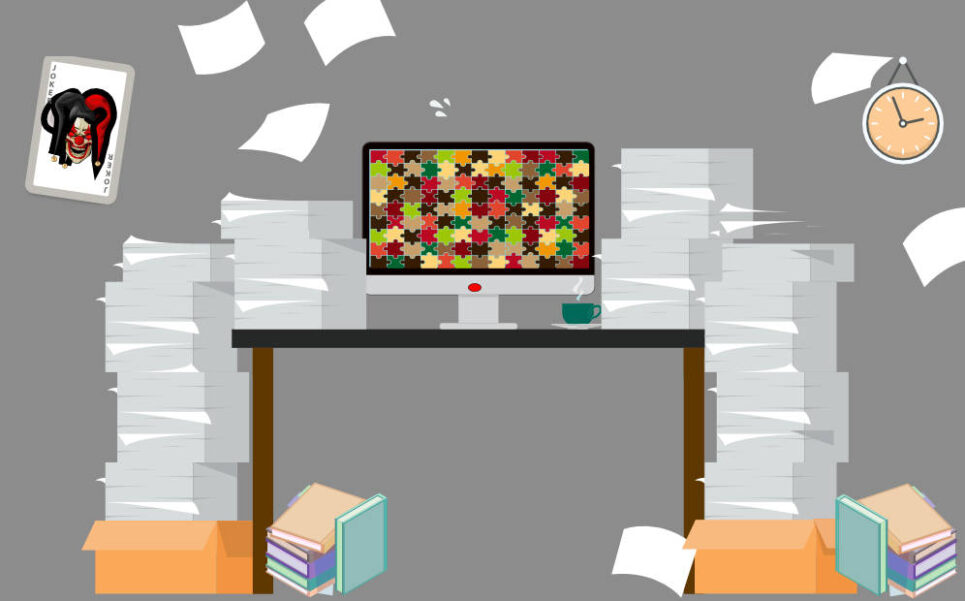
These challenges not only affect the efficiency of the legal process but also impact individuals’ ability to access a fair and timely resolution of their legal disputes.
The overwhelming number of cases reaching the courts significantly contributes to the congestion of the judicial system.
Courts are overwhelmed with work, with an excessive number of cases that must be handled by a limited number of judges and court staff. This congestion not only slows down the legal process but can also lead to trial delays and accumulation of a large number of pending cases.
The lack of resources and staff in the courts is another factor contributing to slowness and congestion in the judicial system. The shortage of judges, prosecutors, public defenders, and administrative staff hampers the courts’ ability to efficiently handle the workload.
Moreover, the lack of adequate infrastructure, such as courtrooms and information technology systems, can further hinder the efficiency of the judicial system.
Complex and bureaucratic legal procedures can unnecessarily prolong the duration of legal cases. Excessive formality and rigidity of legal procedures can make the process slow and costly, especially for those who lack experience in the judicial system. This can hinder access to justice for people with low economic resources or little legal education.
In some cases, lack of coordination and cooperation between different jurisdictions and levels of courts can lead to conflicts and delays in the judicial process. Lack of unification and standardization of legal procedures can make it difficult for involved parties to navigate the judicial system and can lead to inconsistent outcomes across different courts.
Slowness and Corruption
Some countries that have been pointed out for having significant problems of slowness in their judicial systems include Argentina, Brazil, India, Italy, and Spain.
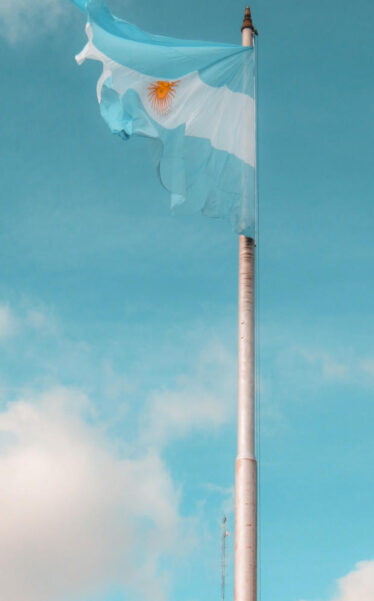
In Argentina, slowness in the courts is an endemic problem that affects the administration of justice in the country. Long waiting times for case resolution, court congestion, and lack of resources are some of the issues facing the Argentine judicial system.
Brazil has also been criticized for slowness in its courts, with cases that can take years to be resolved. Court congestion, complexity of legal procedures, and lack of resources are some of the factors contributing to this problem in the country.
In India, slowness in the courts is a significant problem affecting the administration of justice in the country. Long waiting times for case resolution, court congestion, and lack of resources are some of the challenges facing the Indian judicial system.
Italy has been criticized for slowness in its judicial processes, with cases that can take years or even decades to be resolved. Complexity of legal procedures, lack of resources and staff in the courts, and court congestion are some of the factors contributing to this problem.
Spain also faces challenges in terms of slowness in the courts. Court congestion, lack of resources, and complexity of legal procedures have been identified as some of the main causes of delay in case resolution.
Another significant problem is the lack of access to justice for certain vulnerable groups, such as individuals with low economic resources or minority groups.
Economic and social barriers can prevent these people from accessing the judicial system or obtaining adequate legal representation, leaving them in a disadvantaged and vulnerable position before the law. This highlights the need for measures to ensure equitable access to justice for all citizens.
Furthermore, corruption and lack of transparency in the judicial system can undermine public trust in the impartiality and integrity of the courts.
The perception of favoritism or undue influence can undermine the credibility of the legal system and generate discontent among the population. It is essential for courts to actively work to prevent and combat corruption, ensuring transparency and accountability in their functioning.
Corruption is a cancer that undermines trust in institutions and undermines the rule of law. When it affects courts of justice, the impact is especially harmful, as it undermines the integrity of the judicial system itself and compromises the pursuit of justice. In several countries around the world, corruption has penetrated the courts, creating an environment where judges, prosecutors, and other judicial officials are tempted to act in their own or others’ interests rather than serving the public interest.
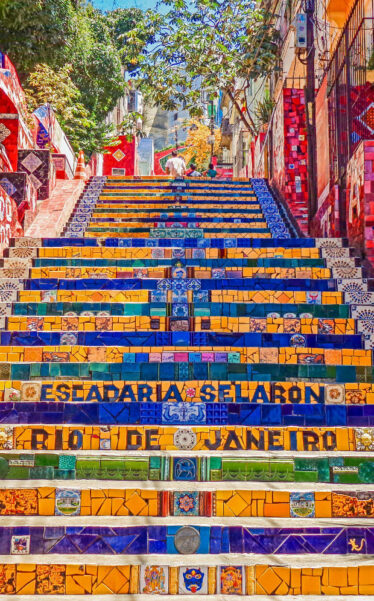
Some countries where corruption significantly affects courts of justice include:
In Brazil, corruption in the courts has been the subject of public attention in recent years, especially in the context of Operation Car Wash. This investigation revealed a network of corruption involving politicians, businessmen, and public officials, including some judges and magistrates. Corruption in the Brazilian judicial system has weakened public trust in the impartiality and integrity of the judicial system and has led to calls for structural reforms to address this problem.
Corruption in the Mexican judicial system is an endemic problem that has hindered the pursuit of justice in the country. Reports of bribery, extortion, and manipulation of judicial cases are widespread, undermining public trust in the judicial system. Lack of transparency and accountability in the Mexican judicial system has allowed corruption to flourish, and addressing this problem will require a firm commitment from authorities and political will to implement significant reforms.
In Russia, corruption in the judicial system is a widespread problem that affects the administration of justice in the country. Reports of bribery, undue political influence, and partial judicial decisions are common, undermining the credibility of the judicial system and weakening the rule of law. Lack of judicial independence and influence of the executive branch in the judicial system have contributed to the perpetuation of corruption in Russian courts.
In Nigeria, corruption in the judicial system is a serious problem that has hindered the administration of justice in the country. Reports of bribery, influence peddling, and manipulation of judicial cases are widespread, undermining public trust in the judicial system. Lack of transparency and accountability in the Nigerian judicial system has allowed corruption to thrive, and addressing this problem will require structural reforms and political will to implement effective control and oversight measures.
In Venezuela, corruption in the judicial system is a chronic problem that has exacerbated the political and humanitarian crisis in the country. Reports of corruption, nepotism, and lack of judicial independence are frequent, undermining public trust in the judicial system and contributing to the erosion of the rule of law. Lack of transparency and accountability in the Venezuelan judicial system has allowed corruption to take root, and addressing this problem will require a serious commitment from authorities and civil society to implement significant reforms and restore the integrity of the judicial system.
Entering into detail, some prominent cases of corruption in courts of justice in Colombia, Venezuela, Mexico, and Nigeria are:
In Colombia, the “Cartel of the Robe” Case revealed a network of corruption within the Supreme Court of Justice of Colombia, where judges and magistrates allegedly received bribes in exchange for influencing the outcome of cases. Several high-ranking judicial officials were investigated, and some convicted for their involvement in this cartel.
In Venezuela, the Case of Judge Christian Zerpa. Christian Zerpa, a former judge of the Supreme Court of Justice of Venezuela, fled the country and denounced corruption within the Venezuelan judicial system. Zerpa claimed to have witnessed cases of corruption and manipulation of judicial decisions by the government of Nicolás Maduro.
In Mexico, we have the Case of Judge Elvia del Socorro Rodríguez. This Mexican judge was dismissed in 2019 after being accused of receiving bribes in exchange for issuing favorable rulings to certain criminal groups. Her case highlighted corruption in the Mexican judicial system and raised concerns about the integrity of the judicial system in the country.
In Nigeria, there is the Case of Judge Walter Onnoghen. In 2019, Justice Walter Onnoghen, who at the time was the Chief Justice of Nigeria, was suspended and subsequently removed from office for financial irregularities and ethical violations. His case highlighted corruption in the Nigerian judicial system and raised concerns about the independence of the judiciary in the country.
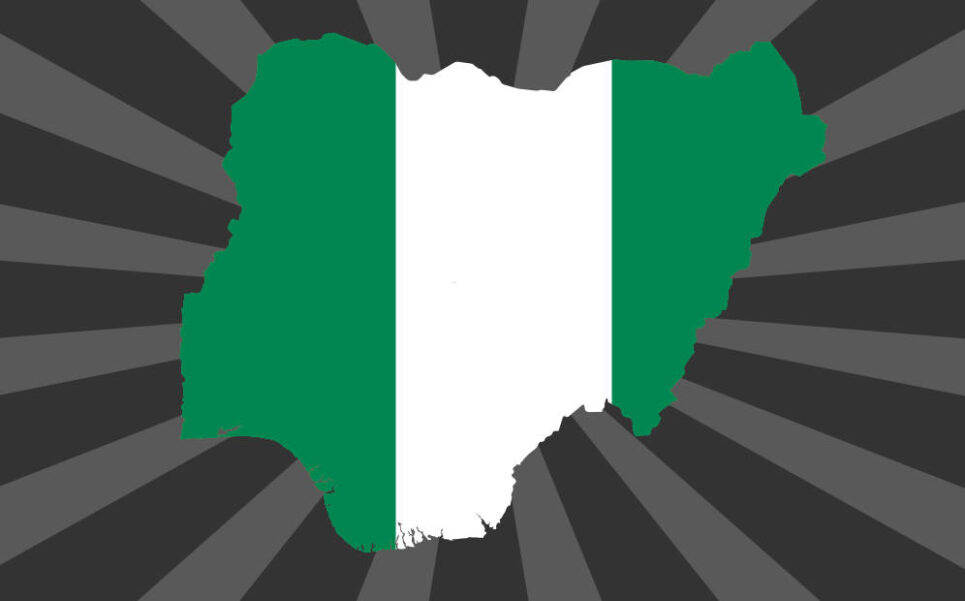
Courts of justice represent the pillars of fairness, legality, and protection of fundamental rights. Their presence and function are indispensable for maintaining order and cohesion in a democratic society. Examining why society needs courts is fundamental to understanding their crucial role in protecting individual rights and preserving the rule of law.
Courts of justice are essential to ensuring that all people are treated fairly and justly under the law.
Courts are also responsible for preserving the rule of law and the integrity of the legal system. By interpreting and applying laws consistently and equitably, courts contribute to stability and social cohesion. They protect against arbitrariness and injustice and ensure that legal standards are applied fairly and equitably in all circumstances.
Furthermore, courts play a crucial role in protecting democracy and strengthening democratic institutions.
The principle of equality before the law is one of the most important foundations of the legal system. This principle establishes that all individuals are equal before the law and should receive the same treatment and protection from judicial authorities. However, in practice, the application and scope of this principle may vary in different contexts and jurisdictions.
The struggle for equality before the law has led to the enactment of laws and policies that seek to eliminate discrimination and ensure equal opportunities for all citizens. For example, many countries have established laws prohibiting discrimination in employment, housing, and public services.
International Justice Mechanisms
The protection of human rights, disarmament, international crime, migration, nationality issues, or the use of force, as well as international trade and sustainable development, fall under the competence of international law.
Therefore, there are several international courts that contribute to the application of international law in the world.
International justice allows, in addition to resolving disputes between States, ensuring accountability for some of the most serious crimes, such as genocide, crimes against humanity, or war crimes.

Victims of such crimes are sometimes denied justice due to lack of political will to investigate crimes and prosecute those responsible, weakness in the criminal justice systems of some countries, and social marginalization of many of the victims, as indicated by Amnesty International.
Therefore, international justice mechanisms can intervene to contribute to international humanitarian law, ensure that crimes are properly investigated, that those responsible are brought to justice, and that victims obtain reparation for the harm suffered.
The International Court of Justice is the principal judicial organ of the UN and the world.
This international tribunal was established in 1945 through the adoption of the Statute of the International Court of Justice. It is important to note that it is not a criminal court; it cannot judge individuals, only States, and, in this sense, all those States that are members of the UN automatically recognize the existence of the Court and can make use of its services.
On the one hand, it is responsible for resolving, in accordance with international law, legal disputes submitted by States.
The Court is also responsible for issuing advisory opinions on legal issues raised by authorized UN bodies and its specialized agencies.
The International Criminal Court judges individuals who have committed genocide, crimes against humanity, war crimes, and aggression.
ICC judges have issued 38 arrest warrants and, thanks to State cooperation, 21 individuals have been detained in its detention center and have appeared before the Court. In total, ICC judges have issued 10 convictions and 4 acquittals.
The International Tribunal for the Law of the Sea resolves disputes concerning the delimitation of maritime zones or the preservation of the marine environment. It was established by the United Nations Convention on the Law of the Sea of 1982 and entered into force in 1994; it is now an independent entity with special cooperation agreements with the UN.
The International Residual Mechanism for Criminal Tribunals is responsible for the essential functions of the former International Criminal Tribunals for Rwanda and the former Yugoslavia. It was established in 2010 by the UN Security Council.
The principle of equality before the law is an essential element of the legal system that ensures justice and equality of opportunities for all people. Its application encompasses different areas of law, and its scope has been expanded to address gender, racial, and human rights inequalities. It is essential to continue promoting and defending this principle to build fairer and more inclusive societies.
In Conclusion
The issue of justice in our society is a complex challenge that requires the attention and commitment of all actors involved in the judicial system. While there are significant challenges, courts play a crucial role in addressing this issue, working to ensure fairness, legality, and respect for the fundamental rights of all citizens.
Courts have an tireless task as guarantors of justice and equity, which is essential to maintaining order and social cohesion. They are essential for protecting the rights and fundamental freedoms of all citizens. Their work is fundamental to building a more just and equitable society for all.


